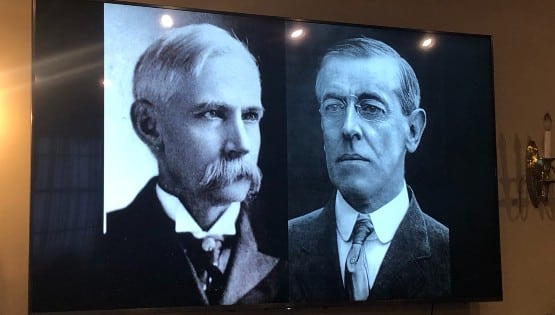
“Great men, great nations have not been boasters and buffoons, but perceivers of the terror of life, and have manned themselves to face it.” Ralph Waldo Emerson
The challenge to American millennials is to rekindle faith in our nation’s ideals. The great American experiment has drifted toward dysfunction. Some reasons for this dysfunction are confusion over globalization, anger over some of its side effects in the U.S., and growing inequality of wealth and growth in the number of ethnic minorities.
The U.S. and the West led the globalization revolution in the early 1990s. The horizon appeared full of promise – that democracy, ethical capitalism and free, fair trade would spread throughout Latin America and the rest of the developing world.
The Industrial Revolution made possible a leap in human development for some countries, which became known as developed nations. In spite of dramatic upheavals, developed nations acquired higher standards of living and gradually established systems of law, work and government that made the changes manageable. Granted that those nations, rather than sharing the means to harness the forces that were unleashed, often took advantage of the undeveloped nations; but humans are not perfect, and progress requires perpetual reinforcement.
With globalization, the opportunity to mature further was presented to humanity; those who had launched the revolution could share with still-developing and undeveloped nations not only the technological and scientific means to access the resulting opportunities, but the socio-political foundations for stability, equity and growth — democracy, the rule of law, honoring the unique dignity and rights of individuals. Historical problems won’t be solved by smart phones, computers and weapons, and they won’t be solved by economic and political machines that require no human oversight. We must acknowledge that these problems are mainly a result of our lack of maturity, which is where our investment of resources has been found lacking.
Most countries and corporations with the capacity to profit from globalization’s opportunities did so primarily in their own self-interest. Those countries, especially the United States, missed an opportunity by creating greater inequality in wealth and income while shrinking its middle class.
Fortune Magazine published an article by Erik Sherman on results of the Allianz’s new Global Wealth Report of 2015, entitled “America is the Richest, and Most Unequal Country.”
A few governments, in enlightened self-interest, harnessed the opportunities to improve upward mobility and grow middle classes. Among these, China used globalization to move millions out of poverty, while Canada increased the upward mobility of its poorest 20 percent between 2013 and 2016 by 24 percent (that of the U.S. poorest during the same period increased by 16 percent). These two nations, with vastly different socioeconomic and political systems yet led by long-term planning and the goal of promoting the common good of their people, benefited from globalization.
In contrast, the effects of globalization observed in declarations, actions, and lack of action by the U.S. illustrate what Franklin Roosevelt implied by his statement that “the only thing we have to fear is fear itself.” Fear merely leads to fight-or-flight reactions, not to reflection, dialogue and progress. Our prevailing divisions, anger, and chaos can be countered by following Roosevelt’s advice and the example of the Greatest Generation of Americans who did not allow the Nazis nor the Great Depression to intimidate them.
Said effects are a wake-up call for Americans. We must acknowledge that some in government, some corporations, and some media organizations exploited our complacency. We, the People, felt entitled to our long-held standard of living and accepted our pliable role as consumers of cheaper products and services, entertainment and simplistic, deceptive information. While distracted by this modern version of bread and circuses, the powerful converted a key original globalization objective — to grow middle classes — into exploiting the existing ones and the poor more strategically and surreptitiously.
Building on the success of spellbinding advertising, the elites now pitch the claim that the culprits behind the negative side effects of globalization are families fleeing wars and socio-economic inequalities, which the former induced, as well as the American laws that protect them.
To make our nation great again, the elites’ strategy seems to be reaffirming the scientifically debunked myth of human racial hierarchy and the mantra of winning-is-the-only-thing. The vision appears to be an autocratic, homogeneously “Caucasian” oligarchy, walled off from other countries and reality, which can win more wars, including economic, environmental and nuclear ones.
Article by Hector E. Garcia, the author of “Clash or Complement of Cultures?”










